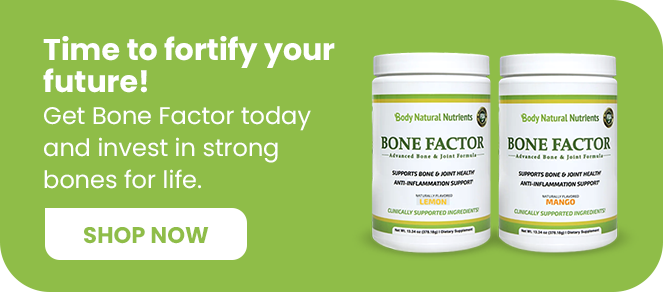Are you worried about your bone health? Do you want to know how plant proteins can help improve your bone density?
Well, you’re in the right place! Did you know that higher protein intake, whether from animal or plant sources, is associated with a favorable change in bone mineral density? In this article, we will explore the benefits of plant proteins for improving bone health and provide practical tips on incorporating them into your diet. Get wide-eyed as we tell you the amazing connection between bone density and plant proteins.Let’s get started!
Key Takeaways Between The Link Of Bone Density and Plant Proteins
- Plant proteins like legumes, nuts, and whole grains give your bones important nutrients such as calcium and phosphorus, making them stronger.
- Eating a mix of plant and animal protein helps increase bone density, but plant proteins also lower the risk of diseases like heart disease.
- To keep bones healthy, adults should eat about 46 to 52 grams of plant protein every day from foods like tofu, tempeh, and seeds.
- Replacing some animal protein with plant protein can help improve bone health without losing the benefits that proteins provide to our bones.
- Adding beans, lentils, tofu, quinoa, nuts, and leafy greens to meals is an easy way to get more plant protein for better bone density.
Importance of bone health
Strong bones are key for a healthy life. They support us, let us move, and protect our organs. Without good bone health, activities like walking or even sitting can become painful.
Poor bone health leads to conditions like osteoporosis, making bones weak and more likely to break.
Eating enough protein is crucial for strong bones. Both animal and plant proteins help increase bone density. This makes your bones stronger and less likely to break. A balanced diet with enough calcium, vitamin D, protein, and other nutrients supports your bone health at every stage of life.
Link between bone density and plant proteins
Eating enough protein helps keep your bones strong. This is true whether the protein comes from plants or animals. Our bodies need this nutrient to build and repair bone tissue. Studies show that getting more protein can lead to better bone health, as measured by bone density tests.
Both plant and animal proteins have their roles in supporting our bones. The key is balancing your diet to get enough of the good stuff – like calcium and vitamin K for bone strength.
Next, let’s explore how plant proteins differ from animal ones and why this matters for your bones.
Differences between plant protein and animal protein
Plant proteins have lower saturated fat and no cholesterol, making them heart-healthy. Read more to discover the benefits of plant proteins for bone health!
Nutrient composition
The nutrient composition of plant proteins includes calcium, phosphorus, iron, and essential amino acids. These nutrients are vital for supporting bone health and density. Plant protein sources like legumes, nuts, seeds, and whole grains offer a rich combination of these essential nutrients that contribute to overall bone strength.
Moving on to the impact of plant-based diets on bone health..
Impact on bone health
Protein intake, whether from plant or animal sources, can positively impact bone density. Consuming a well-balanced diet with adequate protein, calcium, and other essential nutrients is crucial for promoting overall bone health.
Both animal and plant proteins play an essential role in supporting bone density. It’s vital to consider the nutrient composition of different protein sources to ensure optimal bone health.
Additionally, partial replacement of animal proteins with plant-based proteins may contribute to improved markers of bone resorption and formation.
The relationship between bone density and plant proteins is complex and varies based on the specific sources of protein consumed. High protein intake has been associated with positive changes in bone mineral density but should be part of a balanced diet that includes sufficient calcium and other vital nutrients for healthy bones.
Plant-Based Diets and Bone Health
Plant-based diets have been linked to improved bone health, and studies suggest that higher plant protein intake is associated with a lower risk of osteoporosis. For more insights on the benefits of incorporating plant proteins into your diet for better bone density, read the full blog.
Evidence from studies why bone density and plant proteins are linked
Studies consistently show that higher protein intake, whether from animal or plant sources, is linked to improved bone mineral density. A balanced diet with sufficient protein intake, along with adequate calcium and other nutrients, is essential for strong bones.
Partial replacement of animal proteins with plant-based proteins may also support bone health. However, the relationship between protein and bone health is complex and varies depending on the specific sources of protein.
Both animal and plant proteins can play a role in supporting bone density when consumed as part of a well-rounded and nutrient-rich diet.
Recommended intake of plant protein for bone health
To maintain bone health, aim for a daily intake of around 46 grams of plant protein for adult women and 52 grams for adult men. This can be achieved through sources such as legumes, tofu, tempeh, seitan, nuts, seeds, and whole grains.
By incorporating these plant-based proteins into your diet alongside other essential nutrients like calcium and vitamin D, you can help support improved bone density and overall bone health.
Moving forward to “Other Benefits of Plant Proteins for Bone Health”..
Moving forward to “Other Benefits of Plant Proteins for Bone Health”..
Other Benefits of Plant Proteins for Bone Health
Plant proteins provide essential nutrients and promote lower risk of chronic diseases. For more in-depth information, delve into the article to read further.
Lower risk of chronic diseases
Consuming plant proteins can help reduce the risk of chronic diseases such as heart disease, diabetes, and certain cancers. Research shows that plant-based diets rich in protein can lower inflammation and improve blood sugar levels, contributing to a decreased risk of these long-term health conditions.
Additionally, replacing animal proteins with plant proteins can lead to better weight management, which further reduces the likelihood of developing chronic diseases. It’s essential to consider incorporating various plant protein sources into your diet for overall bone health while also reaping the benefits of lowering the risk of chronic illnesses.
Higher nutrient density
Plant proteins offer higher nutrient density compared to animal proteins, as they contain a variety of essential vitamins and minerals crucial for bone health. This includes nutrients such as calcium, vitamin D, phosphorus, and isoflavones which are vital for maintaining bone density and strength.
The consumption of plant-based proteins can provide a rich source of these nutrients necessary for healthy bone formation and support. It’s important to focus on incorporating a diverse range of plant-based protein sources to ensure the body receives an array of essential nutrients required for optimal bone health.
How to Incorporate Plant Proteins into Your Diet
Incorporate plant proteins by adding beans, lentils, tofu, and quinoa to your meals. For more helpful tips on boosting bone health with plant proteins, explore the full article.
Plant-based protein sources
Diversify your protein intake by including plant-based sources such as lentils, chickpeas, tofu, edamame, and quinoa. These options are rich in calcium, which is crucial for bone density.
Additionally, nuts and seeds like almonds, chia seeds, and sunflower seeds provide essential nutrients like phosphorus that support bone health. Incorporating a variety of these plant proteins into your diet can help improve bone density while also offering additional health benefits associated with a plant-based diet.
Remember that dark leafy greens such as spinach and kale are excellent sources of plant-based protein along with essential vitamins that contribute to healthy bones. If you’re not already incorporating these into your meals regularly, now is the time to start!
Meal ideas and recipes
Incorporate plant proteins into your day with these simple meal ideas and recipes! Try a hearty lentil soup packed with protein, fiber, and essential nutrients for bone health. Enjoy a delicious quinoa salad loaded with chickpeas, spinach, and nuts to boost your protein intake while supporting bone density.
For a satisfying snack, spread almond butter on whole grain toast or enjoy hummus with veggie sticks. Get creative in the kitchen by adding tofu or tempeh to stir-fries or salads for an extra punch of plant-based protein.
Incorporating these tasty options into your diet can help improve the link between bone density and plant proteins.
FAQs On The Link Between Bone Density and Plant Proteins
- What makes plant proteins good for your bones?
Plant proteins help improve bone density because they have nutrients like calcium, phosphorus, and vitamin K which are important for healthy bones. - Can eating more plant proteins reduce my risk of osteoporosis?
Yes, adding more plant-based protein to your diet can lower the risk of developing osteoporosis by helping maintain muscle mass and bone health. - How does plant protein compare with animal protein in supporting bone health?
While both are beneficial, plant proteins offer additional benefits such as isoflavones and other nutrients that support bone density without the high levels of certain minerals that might harm bone health when consumed in excess from animal sources. - Why is calcium intake important when talking about bone density and plant proteins?
Calcium works together with protein to strengthen bones. Plant-based diets rich in these nutrients ensure proper calcium absorption and contribute to improved bone density. - Are there any other benefits of following a high-protein plant-based diet for my bones?
Yes! Besides improving bone health, a diet rich in plant proteins also supports healthy aging by providing essential vitamins and minimizing the risk factors associated with dietary patterns high in animal products.
Conclusion
To sum up, plant proteins can positively impact bone density and overall bone health. Incorporating a variety of plant-based protein sources into your diet, such as legumes, nuts, and seeds, can contribute to improved bone density.
It’s essential to maintain a balanced diet with sufficient protein intake for optimal bone health. Considering the evidence from studies and the benefits of the link between bone density and plant proteins, it’s clear that they play a crucial role in supporting healthy bones.
By focusing on nutrient-rich foods and incorporating the right proteins into your meals, you can take proactive steps towards improving the link between bone density and plant proteins.



